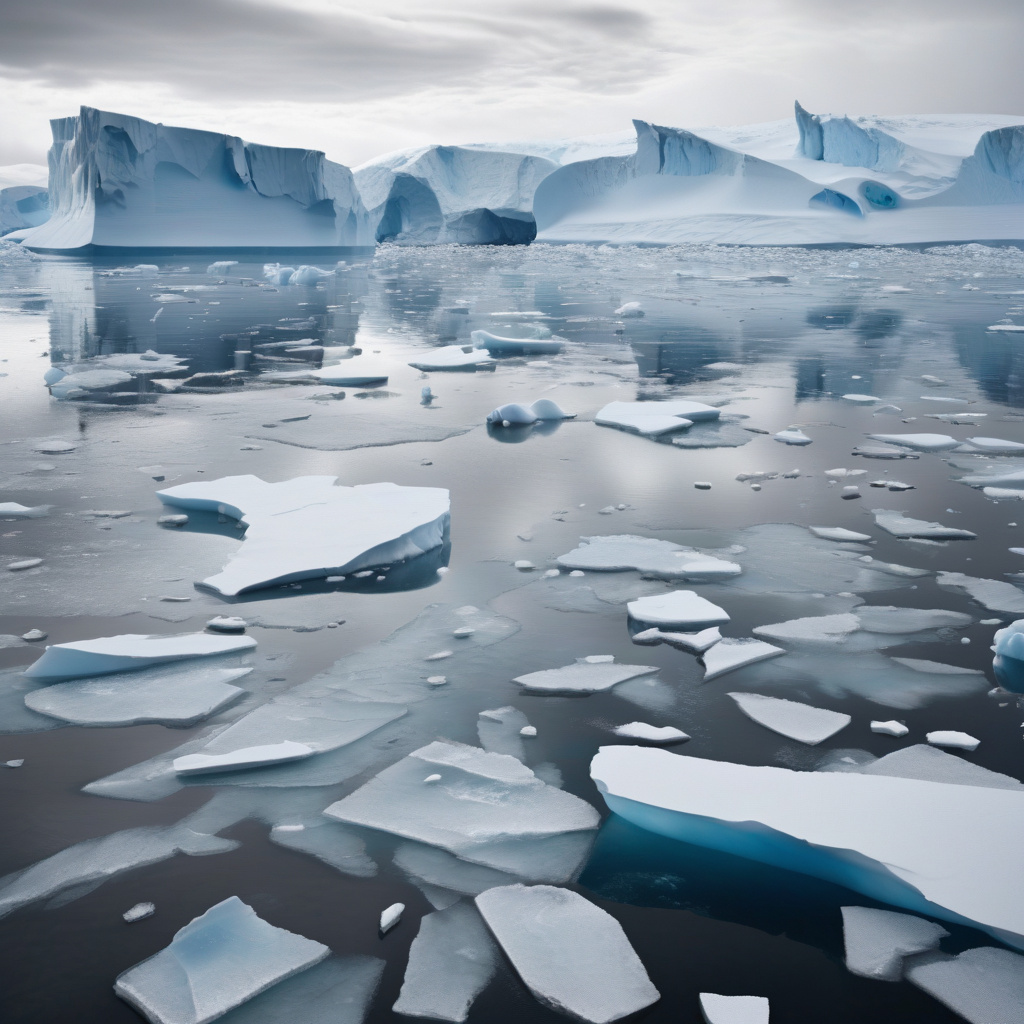Antarctica on the Brink: Sea Ice Loss Threatens Ecosystems Worldwide, Warns Study
According to a new study, Antarctica is at risk of abrupt and potentially irreversible changes due to the alarming rate of sea ice loss. The implications of this environmental crisis extend far beyond the icy continent’s borders, posing a threat to ecosystems worldwide. The findings of the study serve as a stark reminder of the urgent need for global action to address climate change and its devastating effects on our planet.
Antarctica, often regarded as a frozen wilderness at the edge of the world, plays a crucial role in regulating the Earth’s climate. The vast expanse of sea ice that surrounds the continent not only provides a habitat for a wide range of unique species, but also reflects sunlight back into space, helping to keep the planet cool. However, rising temperatures linked to human activities such as burning fossil fuels have led to a rapid decline in Antarctic sea ice levels.
The consequences of this decline are far-reaching. As sea ice melts, it exposes darker ocean waters that absorb more heat from the sun, further accelerating the warming of the planet. This feedback loop not only affects Antarctica’s delicate ecosystems, including iconic species such as penguins and seals, but also has global implications for sea levels, weather patterns, and marine biodiversity.
One of the most concerning aspects of the study is the potential for abrupt and irreversible changes in Antarctica’s ice sheets. These vast glaciers, which hold enough ice to raise global sea levels by over 50 meters, are already showing signs of instability. If they were to collapse, the effects would be catastrophic, leading to widespread flooding of coastal areas around the world.
The study’s authors emphasize the need for immediate and decisive action to curb greenhouse gas emissions and limit global warming. By reducing our carbon footprint and transitioning to renewable energy sources, we can help slow the rate of sea ice loss in Antarctica and mitigate its impacts on both local and global ecosystems. Additionally, increased protection and conservation efforts are needed to safeguard the continent’s unique biodiversity and ensure its survival in the face of a rapidly changing climate.
As the world grapples with the urgent threat of climate change, the plight of Antarctica serves as a stark reminder of the interconnectedness of our planet’s ecosystems. By heeding the warning signs and taking meaningful steps to address the root causes of sea ice loss, we can work towards a more sustainable future for Antarctica and all of its inhabitants.
#Antarctica, #SeaIceLoss, #ClimateChange, #Ecosystems, #GlobalAction












